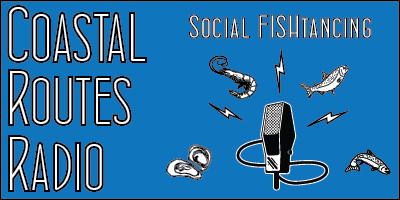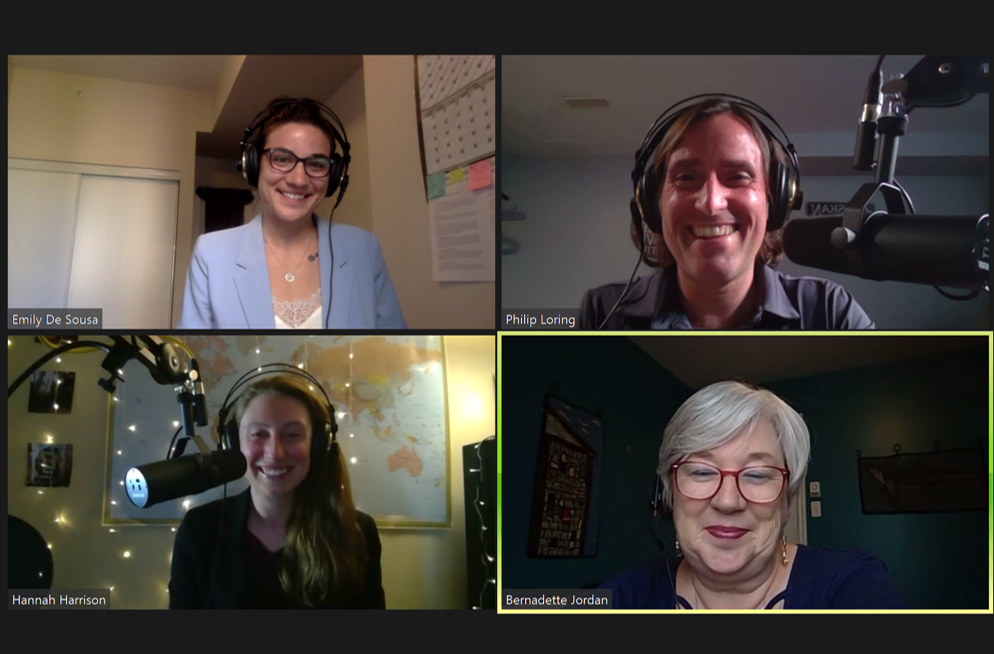Scholarly podcasts are on the rise, but could this approach to knowledge mobilization also be an emerging qualitative method?
Podcasting as a method for knowledge mobilization in science has become increasingly popular in the last few years, as academics searching for more effective ways to share their work and engage non-scientific audiences. Our team has found that podcasting can also be a research method in and of itself, building on a long tradition of story-as-research in the social sciences. Given the new pandemic-imposed realities of doing work from a distance, podcasting represents an important opportunity – and perhaps vehicle – to connect with communities, collect data, and maintain the intimacy and authenticity that makes human social research so impactful.
That podcasting is so popular is not surprising; the medium is extremely accessible in that it allows people to engage with new content on their own schedule. A multitude of science-oriented podcasts are presently available. Some, like Ologies, use comedy to demystify science for a public audience; others, like the In Common podcast or The Fisheries Podcast, use long-form interviewing to dig into scientific research. Others still, such as Dr. Hannah McGregor of Simon Fraser University and our team at the University of Guelph, are pushing the envelope of podcasting even further—as a platform for research processes. Dr McGregor’s work explores the podcasting medium as a means of producing digital intimacy between teachers and learners, which has become particularly poignant during the pandemic, as well as developing an approach to peer-review of podcast scholarship through the Amplify Podcast Network.
The Social FISHtancing podcast

The Coastal Routes project seeks to elevate and learn from stories of coastal resilience and innovation. When the pandemic hit, our team found much of our research shut down. Much social science relies on close interactions with strangers, but this, of course, was off the table.
In our scramble to regroup and support students, we were surprised to hear consistent reports of seafood harvesters within our partner organization, the Local Catch Network, were experiencing huge spikes in demand for locally caught seafood. These harvesters all owned or fished for alternative seafood networks (ASNs), which are individuals or groups who harvest and sell direct-to-consumer seafood products. Though everyone was hunkered down at home, big changes were sweeping the seafood world, and we wanted to keep up.
Prior to COVID-19, we did plan to host a podcast as a part of the Coastal Routes project, but up until then we hadn’t identified a direction for it. Then, it hit us. We realized that the “right topic” we had been waiting for was rapidly being presented. Perhaps a podcast that followed changes in the seafood industry during COVID19 was the right way to try out this new-to-us approach to knowledge mobilization. And so, the Social FISHtancing podcast was born. What we didn’t anticipate at that time was just how effective the podcast would be not only as a storytelling device, but also as a research method.

The Coastal Routes Radio team interviewed Canada’s Minister of Fisheries, Oceans, and the Coast Guard, the Honourable Bernadette Jordan to talk about the federal government’s response to COVID-19 shocks to the fishing industry. (Clockwise from top left) Emily De Sousa, Philip Loring, the Honourable Bernadette Jordan, Hannah Harrison
Podcasting as method
Our podcast is formatted in an interview style, where the three co-hosts take turns introducing pre-recorded interviews from usually 3-4 guests from the seafood world. As we put together our first few episodes, we realized that our process of finding themes and storylines in the interviews had deep parallels to the open and thematic coding common to qualitative data analysis. For the unacquainted, coding involves reading through a variety of different kinds of materials and flagging (or “coding”) the text for themes. In preparing our interview materials for the podcast, we were drawing from the same analytical skills we’d been using in formal research for years.
We were also impressed by how the podcast facilitated the speedy collection and sharing of data. Qualitative data collection, analysis, and reporting can be time consuming and lengthy. The podcast allowed us to keep up with the rapidly changing landscape of seafood in the pandemic by creating an outlet to rapidly collect, study, and share key findings.
However, this rapid format didn’t undermine the more traditional methods that characterize our work. If anything, the iterative podcasting work set us up to be more targeted and efficient in recognizing key research contributions that could be made from our interview data. We still followed ethical protocols for research and implemented rigorous analytical methods to build a framework of understanding around alternative seafood networks, which then formed the basis of a traditional academic article.
Challenges
Of course, scholarly podcasting is not without its challenges. This podcast requires the significant time investment of three people (one master’s student, one postdoc, and one tenured faculty member), with each episode built from between 4-7 hours of interviewing, and a further 4-8 hours of recording and post production. We are fortunate to have funding from programs that prioritize knowledge mobilization as a core activity of research and justify this time investment, but we acknowledge that many science funding streams still treat it as an afterthought. While our team found the time investment toward podcasting as very worthwhile, this is not a realistic scenario for all.
If you are interested in scholarly podcasting, have a listen to our latest episode of Social Fishtancing, “The Methods Section”, where we talk about the process and work that goes into each episode. And please, feel free to reach out to us at [email protected] to ask questions or chat about your project.
***
Author information
Hannah Harrison, Emily De Sousa, and Philip Loring are all affiliated with the Department of Geography, Environment, and Geomatics at the University of Guelph in Ontario, Canada. Together they are primary researchers on the Coastal Routes project, and co-host the Social FISHtancing podcast on Coastal Routes Radio. You can find them at www.coastalroutes.org, or on social media.
Hannah Harrison @fishpeopleplace
Emily De Sousa @emilyseaside
Philip Loring @ConserveChange
Coastal Routes project @Coastal_Routes
